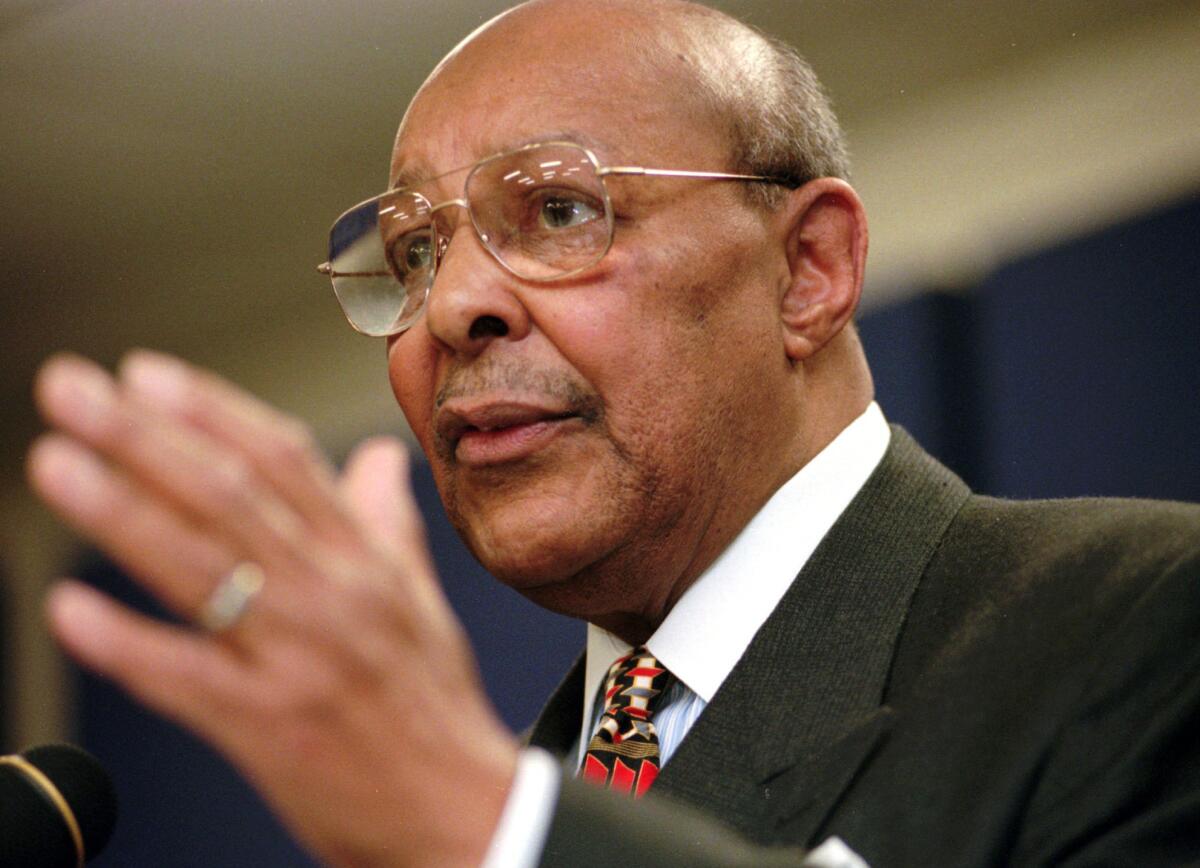Louis Stokes dies at 90; probed assassinations, scandals as congressman

Louis Stokes, shown in 1998, was a 15-term congressman from Ohio.
- Share via
Former U.S. Rep. Louis Stokes, a 15-term congressman from Ohio who took on tough assignments looking into assassinations and scandals, has died at the age of 90.
Stokes died at his Cleveland home Tuesday, a month after announcing he had brain and lung cancer, his family said in a statement.
Stokes was elected to the House in 1968, becoming Ohio’s first black member of Congress and one of its most respected and influential. A year earlier, his brother, Carl, had been elected mayor of Cleveland — the first black elected mayor of a major U.S. city.
“Lou leaves behind an indelible legacy in the countless generations of young leaders that he inspired, and he will be sorely missed,” President Obama said in a statement Wednesday.
Stokes headed the House’s Select Committee on Assassinations that investigated the slayings of President John F. Kennedy and the Rev. Martin Luther King Jr. in the late 1970s and concluded there “probably” had been a conspiracy in both cases.
Later, he served on the Iran-Contra investigative committee, where he drew attention for his unflinching interrogation of Lt. Col. Oliver North.
He was just as unflinching with his probe of fellow Democrats when he led the House Ethics Committee investigation of a corruption scandal known as ABSCAM, which led to convictions of one senator and six House members. The senator and five of the House members were Democrats.
Stokes was repeatedly called upon to exercise his legal training and diplomatic skills. He did two tours of duty as chairman of the Ethics Committee and stepped in upon request during an investigation involving the private life of Rep. Barney Frank (D-Mass.), who retired in 2013.
Born Feb. 23, 1925, Stokes grew up in Cleveland and began practicing law after attending Western Reserve University and Cleveland-Marshall College of Law.
Stokes served in the Army from 1943 to 1946 in a segregated unit where he said he experienced racism for the first time in his life.
Struggles with racism lasted a lifetime.
In 1991, a Capitol Hill police officer ignored Stokes’ valid parking tag and refused to let the congressman into his own office building; he didn’t believe the black man behind the wheel was a member of Congress.
Stokes registered a complaint through official channels and did not publicly discuss the demeaning delay at his own office.
A criminal lawyer for two decades before running for Congress, he argued a landmark “stop and frisk” case before the Supreme Court and worked on the NAACP lawsuit that forced Ohio to redraw the lines of what would become the state’s first black-majority congressional district.
More to Read
Start your day right
Sign up for Essential California for the L.A. Times biggest news, features and recommendations in your inbox six days a week.
You may occasionally receive promotional content from the Los Angeles Times.






